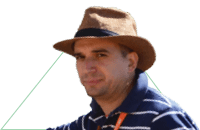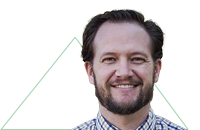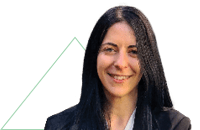Can the Critical Raw Materials Act deliver on its promise?Join this expert-driven event exploring the Critical Raw Materials Act (CRMA) from both European and an Italian case study perspective. This panel will highlight how the CRMA is reshaping geoscientific priorities, affecting exploration, and redefining the link between science and policy. Hear from key stakeholders across institutions, industry, and academia as they debate challenges, share solutions, and highlight what’s next for securing Europe’s critical raw materials future. A must-attend for anyone working at the intersection of geoscience, policy, and strategic resources.
The CRMA Challenge: Europe’s Strategic Path for Innovation & Critical Raw Materials
Join us for an exclusive half-day event dedicated to understanding and discussing the impact and implementation of the Critical Raw Materials Act (CRMA) in Europe. This panel gathers experts from industry, academia, and public authorities to dive deep into the strategic and operational implications of the CRMA, with a special focus on Italy’s pioneering experience.
The CRMA marks a significant shift in Europe’s approach to managing critical raw materials—essential to powering the green transition and securing sustainable industrial growth. Learn directly from experts how the Act affects permitting regimes, ESG compliance, strategic planning, and business opportunities.
Insight into current challenges and opportunities arising from CRMA implementation.
Practical examples from Italy that showcase successful practices and lessons learned. Expert perspectives on what the future holds for critical raw materials supply and innovation in Europe.
11:00 – 11:10 – Florian Anderhuber – Euromines
11:10 – 11:20 – Myrto Papadopoulou – Smart Exploration
11:20 – 11:30 – Kyle Bahr – Emergent Analytics
11:30 – 11:45 – presentation by ISPRA and The University of Naples Federico II
11:45 – 12:30 – Panel discussion based on the presentation
The European Association of Geoscientists and Engineers (EAGE) is a global professional, not-for-profit association for geoscientists and engineers with approximately 19,000 members worldwide.
088 99 55 055
The European Association of Geoscientists and Engineers (EAGE) is a global professional, not-for-profit association for geoscientists and engineers with approximately 19,000 members worldwide.
088 99 55 055

Andrea Dini
CNR-IGG
Senior Researcher, and currently the Director of the Institute of Geosciences and Earth Resources – CNR (Pisa, Italy).
He works on magmatic-hydrothermal systems, with a focus on ore deposits and geothermal systems. He alternates scientific expeditions to all continents of the planet with analytical activities in CNR’s mineralogy, geochemical and isotopic labs.
Participates as a CNR expert in Interministerial Technical Tables on Critical Raw Materials.

Nicola Mondillo
University of Naples Federico II
An Associate Professor of Economic Geology at the Dipartimento di Scienze della Terra – Università degli Studi di Napoli Federico II.
Nicola Mondillo’s research is mainly devoted to the study of the geology, mineralogy and geochemistry of Zn-Pb and Al ores and the critical elements department.
His recent research is aimed at developing new remote sensing techniques for investigating mineral deposits.

Licia Santoro
University of Turin
Tenure track Researcher at the Department of Earth Sciences (University of Turin, Italy); professor of Georesources and Economic Geology in BSc and MSc program at Faculties of Natural Science, Agriculture and Geology.
MSc degree in Applied Geological Sciences at the University of Naples, succeeded European PhD within Economic Geology on a research project focused on Pb-Zn ore deposits in Turkey, Alaska, and Yemen, using advanced analytical techniques. Post-Doc researcher at the Natural History Museum of London and at the GEMME Lab of the University of Liège. In 2017, she was awarded a Marie Skłodowska-Curie Individual Fellowship (H2020) for a project on critical elements in unconventional minerals. Collaboration with private companies and international universities (Rio de Janeiro, Lubumbashi, Liège, Yaoundé, Dumlupinar).
She is the author of several peer-reviewed scientific articles and a member of various professional societies in the fields of Mineralogy and Economic Geology.

Kyle Bahr
Emergent Analytics
An independent consultant and researcher specializing in stakeholder risk mitigation, sustainability, and the application of machine learning in the geosciences. With a PhD in Mining and Earth Systems Engineering from the Colorado School of Mines, his work bridges technical and social dimensions of resource development—spanning critical mineral exploration, renewable energy feasibility, and socio-political risk assessment.
Kyle has led or collaborated on projects across six continents, integrating geoscience, data science, and stakeholder engagement to reduce social risk and improve community relations in resource-intensive industries. His recent work includes the development of SLACDA, a machine learning tool that analyzes community concerns and emergent values to inform decision-making and support social license to operate.
A former professor at Tohoku University in Japan and a current visiting researcher at the University of Eastern Finland, Kyle has published widely on stakeholder networks, ESG strategy, and controversy detection. His practical experience and academic insight make him a strong advocate for improved geoscience communication and culturally informed engagement with host communities.

Florian Anderhuber
Euromines
Dr Florian Anderhuber has been working on EU energy and industry policy for the past 10 years in various positions in companies and the European Parliament.
Currently holding the position as Deputy Director General at Euromines responsible for energy, climate and sustainability, Dr Anderhuber has a keen interest to forward the business and investment case for responsible mining operations and link the mining industry to the geopolitical and sustainability challenges the European Union currently faces.

Myrto Papadopoulou
Smart Exploration
An Assistant Professor in Geophysics at the Smart Exploration Research Centre, Uppsala University. She holds a PhD in Geophysics and an MSc in Petroleum Engineering, as well as a BSc/MSc in Mining and Metallurgical Engineering.
Her work develops and applies advanced seismic methods, including reflection imaging, surface-wave analysis enhanced by fiber-optic sensing, and data-driven automation, to address challenges in mineral exploration, geotechnical assessment, landslide characterization, CO₂ storage monitoring, and geothermal evaluation.
She has experience running multidisciplinary field campaigns across Europe and publishes regularly in geophysical journals.
Keep NSG2025 reviewer in the subject
and don’t forget to attach your CV.